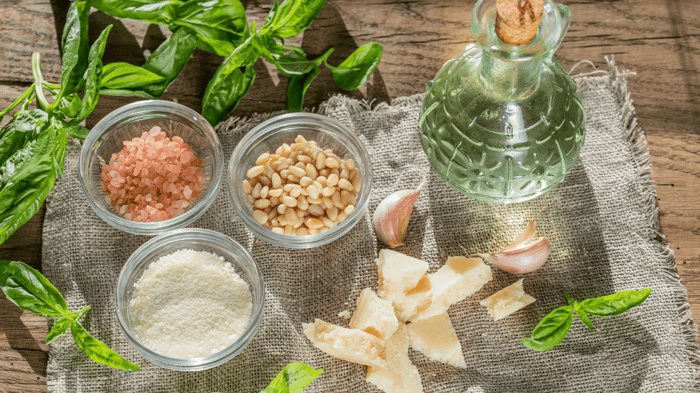Table of Contents
- What Makes Feminine Self-Care Different?
- Mental and Emotional Benefits of Self-Care
- How to Identify Your Personal Self-Care Needs
- Daily Self-Care Practices for Mind and Spirit
- Nourishing the Body Through Feminine Self-Care
- Creating a Personalized Self-Care Environment
- Feminine Self-Care and Intimate Health
- The Flower Power® Perspective
- Final Thoughts
Self-care is one of those concepts that everyone talks about, but few people really understand. It’s not just face masks and bubble baths (though those can definitely be part of it). Building a feminine self-care routine is about creating habits that honor your body, your mind, and your emotions in ways that feel sustainable—not forced.
A feminine self-care routine is about creating daily choices that nurture balance, comfort, and personal well-being. It’s about tuning into what your body needs and saying yes to practices that support long-term health, not just quick fixes.
When approached with intention, self-care reduces stress, strengthens resilience, and creates space for joy. And here’s the truth: it doesn’t need to be complicated. By weaving together small, consistent practices—mindful rest, nourishing meals, gentle movement, and calming rituals—you can design a rhythm of care that feels natural, empowering, and restorative.
What Makes Feminine Self-Care Different?
Self-care isn’t a one-size-fits-all activity. For women, it often intersects with unique pressures tied to gender roles, cultural expectations, and even biology. Feminine self-care acknowledges these realities and says: you deserve practices that work for you, not against you.
It’s not just skincare or exercise—it’s also about emotional balance, reclaiming time, and resisting the pressures that say women must constantly give without recharging. Feminist perspectives remind us that self-care can be both an act of personal wellness and social empowerment. In other words, it’s about building routines that honor your needs, while also challenging the idea that prioritizing yourself is selfish.
At its core, feminine self-care blends physical nourishment with emotional practices like mindfulness, journaling, and reflection. By bringing these together, you create a holistic foundation for both inner and outer well-being.
Mental and Emotional Benefits of Self-Care
The science backs this up: consistent self-care routines improve mental health, reduce stress, and boost resilience. Studies show that people who practice self-compassion are less critical of themselves, and more capable of handling setbacks.
Simple acts—like saying no to overcommitment, making time for a favorite hobby, or practicing relaxation techniques—can reduce burnout and protect against emotional fatigue. For women who juggle multiple roles, these practices aren’t luxuries. They’re survival strategies.
When you integrate daily reflection, affirmations, or mindful stillness into your life, you build confidence and self-love. And self-love isn’t just a feel-good phrase—it’s a shield against stress, comparison, and exhaustion.
How to Identify Your Personal Self-Care Needs
Here’s where most routines go wrong: trying to copy someone else’s perfect Pinterest morning. The truth? Self-care must be personalized. What grounds one woman might overwhelm another.
Start by identifying your stressors, then match them with supportive actions. For instance, if overwork drains you, short breaks and stretching may help. If anxiety is the issue, journaling and deep breathing may feel more restorative.
The key is intentionality. Self-care shouldn’t become another obligation. Instead, set clear intentions that align with your values. A routine rooted in your actual needs is far more sustainable—and far more satisfying—than one borrowed from Instagram.
Daily Self-Care Practices for Mind and Spirit
The mind craves as much attention as the body. Here’s how you can center mental and emotional well-being every single day:
Journaling and Reflection
Journaling isn’t about being a perfect writer—it’s about creating a safe space to unload thoughts and track growth. A gratitude journal, for instance, shifts your focus toward positive experiences.
Even short entries make a difference. Some people write down three good things at the end of the day; others free-write for five minutes each morning. Over time, these notes become a record of resilience and personal growth.
Morning and Evening Rituals
Start your day intentionally. That might mean a big glass of water, a stretch, or setting one clear intention before emails and responsibilities take over.
End your day with softness. Reading, stretching, or simply preparing for tomorrow signals to your body: it’s time to rest. These rituals act as anchors, providing stability even when life feels unpredictable.
Affirmations and Gratitude
Affirmations are not cheesy—they’re brain training. Saying “I am capable of handling today’s challenges” or “I treat myself with kindness” each morning replaces negative self-talk with supportive messages.
Pair affirmations with gratitude to balance forward-looking intention with present-moment appreciation. The combo is powerful: one builds momentum, the other builds peace.
Mindful Stillness and Meditation
Stillness is underrated. Sitting quietly—even for five minutes—helps reset your mind and nervous system. Meditation, whether it’s breath-focused, guided, or mantra-based, deepens this stillness.
The result? Better focus, stronger emotional regulation, and a calmer response to daily stressors. And it doesn’t require hours—a few consistent minutes a day is enough.
Nourishing the Body Through Feminine Self-Care
Your body is the foundation of your energy and resilience. Caring for it doesn’t need to be rigid or extreme—it’s about steady habits that feel good.
Movement and Exercise
Movement is medicine. Whether it’s yoga, walking, dance, or strength training, consistent activity boosts circulation, improves mood, and strengthens resilience.
For some women, yoga or tai chi bring balance and calm; for others, dance classes or cycling offer creative release and empowerment. The point isn’t what you do—it’s that you move in ways that feel enjoyable and sustainable.
Nutrition and Hydration
Food is more than fuel—it’s information for your body. Whole foods, leafy greens, protein sources, whole grains, and healthy fats all help regulate hormones, stabilize energy, and support skin, brain, and bone health.
Hydration is just as important. Dehydration often shows up as fatigue, moodiness, or even vaginal dryness. Drinking enough water—and complementing it with herbal teas—helps maintain balance.
Relaxation Through the Senses
Self-care can be sensory. Aromatherapy, warm baths, lavender oils, or soft music help the nervous system unwind. Engaging the senses transforms ordinary moments into soothing rituals. Even five minutes of intentional breathing with calming scents can shift your whole day.
Creating a Personalized Self-Care Environment
Environment matters. A cluttered space makes rest harder; a soothing space invites it in.
Home Ambiance
Lighting, scent, and sound can transform your space into a sanctuary. Think dim lamps, lavender diffusers, or playlists of calming music. These small changes signal to your mind and body: this is a safe place to recharge.
Pampering and Beauty Rituals
Pampering is not superficial—it’s self-respect. Moisturizing after a shower, applying a hair mask, or exfoliating weekly are small acts that build confidence and comfort. At-home spa rituals, like facial steaming or warm baths with salts, create mini-retreats in your daily life.
Building Sustainable Habits
Consistency is the golden rule. Start small: five minutes of journaling, one evening ritual, or one movement practice. Over time, these actions layer into a routine that feels natural, not forced.
Feminine Self-Care and Intimate Health
No feminine self-care guide would be complete without talking about intimate wellness. Your vaginal health deserves as much attention as your skincare or diet.
Choosing products with clean, natural ingredients helps protect the delicate vaginal ecosystem. Avoiding harsh chemicals, synthetic fragrances, and sulfates keeps irritation at bay. Pairing this with supportive foods—probiotics, cranberries, leafy greens—creates balance from the inside out.
And when dryness or discomfort shows up, you don’t need to suffer in silence. Clean, hormone-free supplements like She Juicy™ provide plant-based support for natural moisture, boosting comfort and confidence without synthetic hormones.
The Flower Power® Perspective
At Flower Power®, we believe self-care should be fun, empowering, and totally shame-free. It’s not about doing everything perfectly—it’s about finding what makes you feel good and honoring it daily.
That’s why we created She Juicy, the hormone-free, plant-based supplement designed to bring back your natural moisture and boost confidence. With ingredients like slippery elm bark and minerals that support vaginal health, She Juicy™ is self-care for your most intimate self.
Final Thoughts
A feminine self-care routine is not about adding more tasks to your to-do list. It’s about creating sustainable, joyful practices that keep your body, mind, and spirit in balance. From journaling to leafy greens, from meditation to breathable fabrics, every small choice builds a foundation for long-term well-being.
And when it comes to intimate health, you deserve support that’s clean, natural, and effective. Discover She Juicy and make intimate self-care part of your daily routine.











